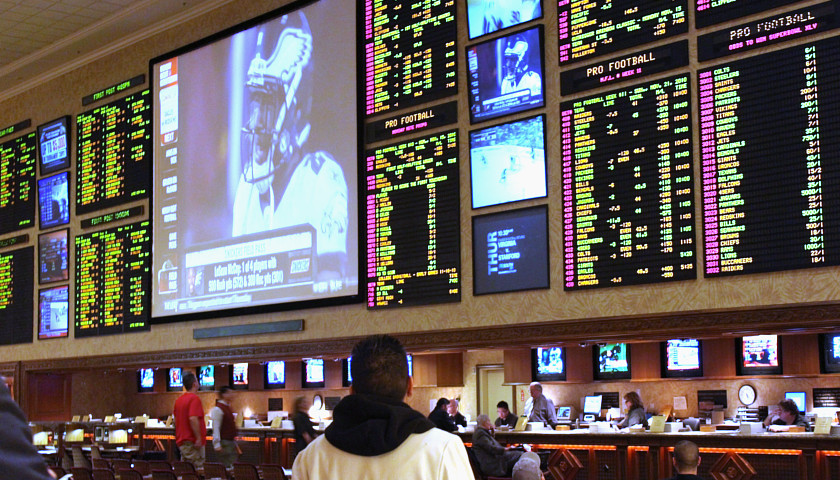by Scott McClallen
Sports, online and others forms of gambling are Gov. Gretchen Whitmer’s signature away from being legal in Michigan.
The Michigan legislature passed a package of bills legalizing several forms of gambling on Wednesday.
House Bills 4916–4918; 4307–4312; 4323; 4173 cover casino gaming, fantasy sports, charitable gaming, and sports betting.
Rep. Brandt Iden, R-Oshtemo Township, the bill sponsor, previously told The Center Square the plan aims to protect consumers from illegally operating offshore websites while creating a new source of revenue without raising taxes.
“People put in their information, subject to privacy concerns, and importantly, if they win, oftentimes they don’t get paid,” Iden said, adding that many people he talks to don’t even realize that it’s illegal.
Whitmer is expected to sign the bills. The governor previously voiced concern the measures could siphon revenue from the School Aid Fund, which is partly funded through internet lottery sales.
“However, I believe that with the tax structure that we’ve set up, as well as directing the funds to the School Aid Fund, we’ll be able to make sure there’s even more revenue in the School Aid Fund at the end of the day,” Iden said.
The plan allows the Michigan Gaming Control Board to regulate internet gaming and prohibits casinos from offering online games that directly compete with Michigan Lottery games.
The majority of the new revenue stream would flow to K-12 schools, with $4 million per year sent to a state fund for first responders workers’ compensation, and $1 million annually to the Compulsive Gambling Prevention Fund.
The Senate Fiscal Agency projected online gaming and sports betting could raise $15 million to $40 million annually for the School Aid Fund.
Iden said this package reigns in tax revenue otherwise sent out of state or to black-market gambling sites.
“These reforms also will benefit Michigan’s economy and provide additional revenue for our schools and local communities – revenue that now goes to other states, or out of the country,” Iden said in a statement. “It’s a win-win situation – and we simply cannot delay these reforms any longer. Delay has put our residents at risk and left our state falling behind Indiana, Illinois and others moving to capitalize on a growing trend.”
The package would tax sports bets at 8.4 percent post-payout, with a tiered tax between 20 and 28 percent on internet gaming, depending on the revenue generated, plus local taxes.
Iden has led gambling reform for three years.
“It’s been a long journey to move sports betting and casino-style gaming into a regulated, safe and modern environment – but the end is in sight, and with it a great opportunity for Michigan will begin,” Iden said. “First and foremost, our reforms will protect the thousands of Michigan residents already wagering online. They will be able to play on safe, regulated sites and use modern technology such as mobile apps.”
If signed, Michigan would join 13 other states that currently allow legal sports betting, including Indiana, Illinois and Pennsylvania.
Iden said Indiana attracted $34.5 million in wagers in its first month of sports betting at casinos.
“This is a reform Michigan residents clearly want because they’re already wagering in other states or on illegal websites,” Iden said. “Our state will no longer miss out on business, and our schools will no longer miss out on revenue. I am thankful for the bipartisan support these reforms have received in the Legislature as Michigan proves we can work together to foster economic growth and protect residents.”
– – –
Scott McClallen is a staff writer covering Michigan and Minnesota for The Center Square. A graduate of Hillsdale College, his work has appeared on Forbes.com and FEE.org. Previously, he worked as a financial analyst at Pepsi.
Photo “Sports Betting” by Baishampayan Ghose. CC BY-SA 2.0.





